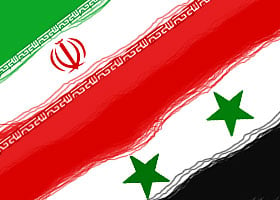January 22, 2013 (kouroshziabari.com) - The inhumane sanctions of the United States and its European allies
against Iran know no boundaries. At the cost of the lives of thousands
of Iranian patients suffering from different types of cancer,
thalassemia, hemophilia, HIV/Aids, psychiatric disorders and other
diseases, the West has banned the export of life-saving medicines and
medical equipments to Iran and this is deteriorating the lives of those
patients who cannot find medicines needed for their survival. The
companies that do business with Iran will be immediately penalized by
the U.S. government and so far no exemptions have been made to ensure
that ordinary Iranian citizens will at least get access to foodstuff,
medicines and other humanitarian goods.
The recent wave of sanctions have also targeted Iranian media as several satellite providers across Asia, Europe, Latin America and North America have taken Iranian television channels off air, denying millions of viewers around the world the chance to find an alternative, Iranian perspective on the world affairs.
However, the sanctions have been so extensive and widespread that they even deprive the Iranian citizens from enjoying the latest productions of technology.
The recent wave of sanctions have also targeted Iranian media as several satellite providers across Asia, Europe, Latin America and North America have taken Iranian television channels off air, denying millions of viewers around the world the chance to find an alternative, Iranian perspective on the world affairs.
However, the sanctions have been so extensive and widespread that they even deprive the Iranian citizens from enjoying the latest productions of technology.




